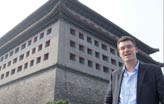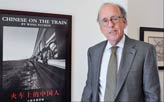Technology
State tweaks resource tax on oil, gas producers
Updated: 2011-09-23 10:26
By Zhou Yan and Du Juan (China Daily)
BEIJING - China will adjust the resource tax ratio on oil and gas producers on the basis of both volume and value, a move that implies that the country may introduce the tax tweak nationwide to tame its explosive demand for natural resources.
The State Council said on Sept 21 that the decision was based on experience gained from the pilot resource tax scheme.
The government has proposed increasing resource taxes nationwide to fund development of the nation's western regions, which have oil, gas and coal reserves. It introduced a trial tax of 5 percent on oil and gas production by value in the Xinjiang Uygur autonomous region in June 2010.
The decision from a State Council meeting didn't specify how the tax will be levied, but Lou Xiaohui, a Ministry of Finance spokeswoman, told China Daily on Sept 22 that a detailed plan will be introduced shortly.
The tax on natural resources at present is linked only to volume. The revised tax will be based on both value and volume with the main goal being to protect the environment.
A higher tax will likely cut profits of oil explorers including PetroChina Co and coal miners including China Shenhua Energy Co.
An industry insider from a large foreign oil and gas company, told China Daily on condition of anonymity on Sept 22 that the adjustment of the resources tax will definitely raise oil and gas producers' costs and thus influence the downstream production, which may involve foreign players. "The effect depends on the different scales of companies' businesses and their projects in China," he said.
"The State Council's announcement is to express its determination to accelerate the reform and to officially implement it nationwide after the trial program," said Ni Hongri, a senior tax researcher at the State Council Development and Research Center.
The tax on power station coal is currently at 3 yuan (47 cents) a ton, Helen Lau, an analyst at UOB-Kay Hian Ltd, said. This is equivalent to less than 0.4 percent of the price of thermal coal at Qinhuangdao, the nation's biggest port for the fuel. The tax on steelmaking coal is 8 to 15 yuan a ton, Lau said. If a tax of 5 percent of production by value is implemented, and assuming coal prices are unchanged, Chinese coal producers' earnings will be cut by 9 to 23 percent.
Oil and gas producers' profits will be cut at the beginning when their tax burden gets higher under the revised resource tax standards, but the rising costs will be finally offset by the price hike of the downstream products, market analysts said.
In the long run, it's highly likely that the cost hike on the upstream side will finally be passed on to the end-user if the demand for natural resources continues to outpace the supply, said Ni.
China, the world's biggest energy consumer, reported 159.87 million tons of fuel consumption during the first eight months of this year, up 6.1 percent from a year earlier.
"The resource tax reform is crucial, but we'd better start from the basics to establish the standard first rather than a drastic reform," he said.
Zhang Xuedan, director of the Research Institute for Fiscal Science at the Ministry of Finance, said that the resources tax adjustment will increase the local governments' fiscal revenue. "But it will be difficult for the central government to supervise the use of the money and to strategically make use of the tax income to benefit the country," he warned.
Bloomberg News contributed to this story.
E-paper

The snuff of dreams
Chinese collectors have discovered the value of beautiful bottles
Perils in relying on building boom
Fast forward to digital age
Bonds that tie China. UK
Specials

Let them eat cake
Cambridge University graduate develops thriving business selling cupcakes

A case is laid to rest
In 1937, a young woman'S body was found in beijing. paul french went searching for her killer

Banking on change
Leading economist says china must transform its growth model soon
